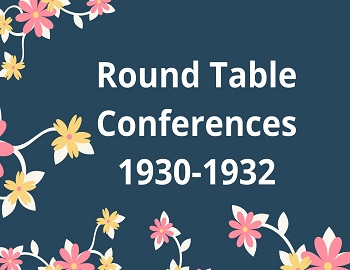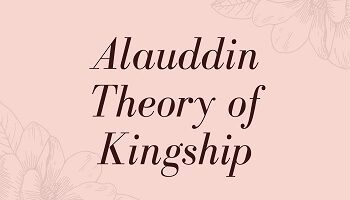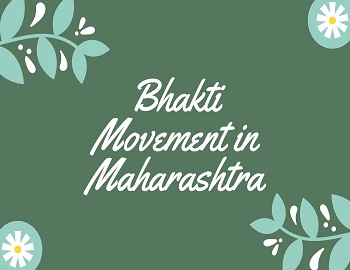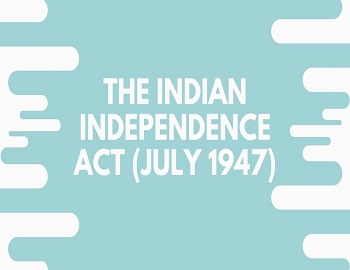Table of Contents
Round Table Conferences 1930-1932:
| After the publication of the Simon Commission Report and its condemnation by the people of India, the British Government called the First Round Table Conference in London. Almost all sections of Indian society- Hindus, Muslims, Christians, Sikhs, Depressed Classes, Zamindars, Capitalists, Europeans living in India, princes and liberals were invited. They all were treated equally in the eyes of the government, therefore it was called Round Table Conference. The representative of each section was chosen carefully by the government to marginalise the Indian National Movement and to prove that only the British could solve their problems. |
| Key Point- All three Round Table Conferences were held in Buckingham Palace, London presided over by Prime Minister Ramsay Macdonald. Alexander Muddyam was the General Secretary. |
First Round Table Conference (12 November 1930- 19 January 1931):
| The British Government convened in London the First Round Table Conference on November 12, 1930, under the chairmanship of the Prime Minister, Ramsay Macdonald (1929-35). The conference, boycotted by the Congress, continued till January 19, 1931. But it was attended by several eminent leaders like Jinnah, Muhammad Ali and Sapru. It was agreed that an Indian Federation including the Indian States should be formed with a parliamentary system of government. The British Government conceded full provincial autonomy and opposed the immediate grant of Dominion Status. The Conference received a set back when B.R. Ambedkar (1891-1956) demanded that for electoral purposes, the Depressed Classes should be treated as a separate community. The Muslim delegation also demanded adequate safeguards for the Muslims of India. |
Second Round Table Conference (7 September- 1 December 1931):
| As it was not considered advisable to proceed with the work of the final form of the future constitution of India in the absence of the representatives of the Indian National Congress, it was decided to call a Second Round Table Conference, and in the meanwhile, efforts were to be made to bring about a reconciliation between the Congress and the Government. The efforts of Tej Bahadur Sapru and Sir M.R. Jayakar were crowned with success and the famous Gandhi-Irwin Pact was Signed in March 1931. As per the Gandhi-Irwin Pact, Congress agreed to participate in the Second Round Table Conference and only Gandhi represented Congress. Sarojini Naidu, the nightingale of India, represented Indian Women. The conference was a disaster. It was agreed at the Conference that Responsible Government must be established immediately and in full, both at the Centre and in the provinces, including complete control over finance, army, defence and external relations. But there was an unending discussion of the communal problem, punctuated by unruly scenes. Dr B.R. Ambedkar demanded a separate electorate for the depressed classes, but Mahatma Gandhi opposed the grant of a separate electorate to the “so-called untouchables” on the ground that they could not be classified as a separate class. Ultimately the Conference broke down since no agreed solution could be formed to the communal issue and Mahatma Gandhi returned to India towards the end of 1931, utterly disillusioned. Gandhi said in distress that while he had asked for bread, he was given a stone. |
Third Round Table Conference (17 November- 24 December 1932):
| Unhampered by the developments on the Indian political scene, the British Government continued with its work of constitutional reforms. The Third Round Table Conference met in London in November 1932. The Congress boycotted the conference arguing that in view of the stand taken by the government no useful purpose would be served. Only 46 delegates attended the session. After the Conference, a White Paper was issued in March 1933 which gave detail of the working basis of the new constitution of India- dyarchy at the centre and responsible government in the provinces, which became the basis of the Government of India Act, 1935. |
| Key Point: (1) Congress participated only in the Second Round Table Conference. (2) Muslim League represented by Jinnah, Muhammad shafi and Maulana Muhammad Ali participated in all Three Round Table Conference like Ambedkar. The League appointed Asaf Ali as its permanent member in London. (3) The Depressed Classes were represented by Dr B.R. Ambedkar and M.C. Raja. |









Comments (No)